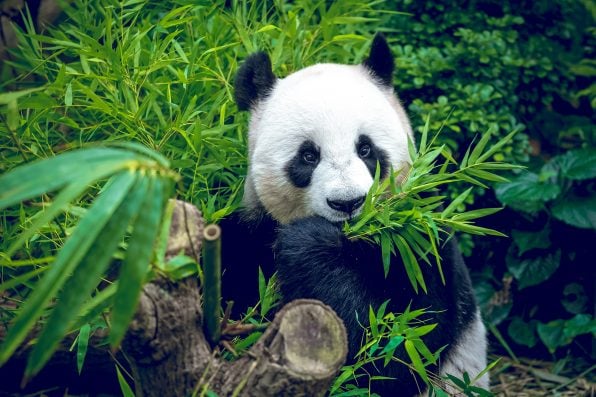In Hong Kong, a giant panda has given birth to a set of twins, the first cubs to be born in the city. The panda, Ying Ying, delivered one male and one female cub right before her 19th birthday, making her the oldest first-time panda mother in the world, according to Ocean Park, the theme park housing the pandas.
Ying Ying has lived at Ocean Park with her partner, Le Le, since 2007. A 19-year-old panda is equivalent to 57 in human years. The cubs were born on August 15 after a nearly five-month pregnancy.
“This birth is a true rarity, especially considering Ying Ying is the oldest giant panda on record to have successfully given birth for the first time,” said Paulo Pong, chairman of Ocean Park Corporation.
The female cub was born first, weighing 4.3 ounces. An hour later, the male cub was born at 3.95 ounces. The cubs were under 24-hour intensive care. Currently, they are “very fragile and need time to stabilize.”
The female cub, in particular, “has a lower body temperature, weaker cries, and lower food intake.” They will stay out of the public eye for a few months until they are in better condition.
Ying Ying spent more than five hours in labor. During much of that time, she was lying on the ground and twisting around, as she was a bit nervous about the whole process.
Beijing gifted Ying Ying and Le Le to Hong Kong in 2007. The pandas have made previous failed attempts to conceive. Finally, Ying Ying began showing signs of pregnancy after they successfully mated at the park back in March.
In late July, Ying Ying had a decreased appetite, increased rest time, and changes in hormonal levels. However, her pregnancy was only confirmed several days before she gave birth since panda pregnancies are difficult to detect.
Giant pandas are also notoriously bad at reproducing, which contributes to their declining population. It is estimated that 1,800 of them are left in the wild. Panda breeding programs have helped boost their numbers, though. In recent years, the species have gone from a status of “endangered” to “vulnerable.”

Sign up for Chip Chick’s newsletter and get stories like this delivered to your inbox.


